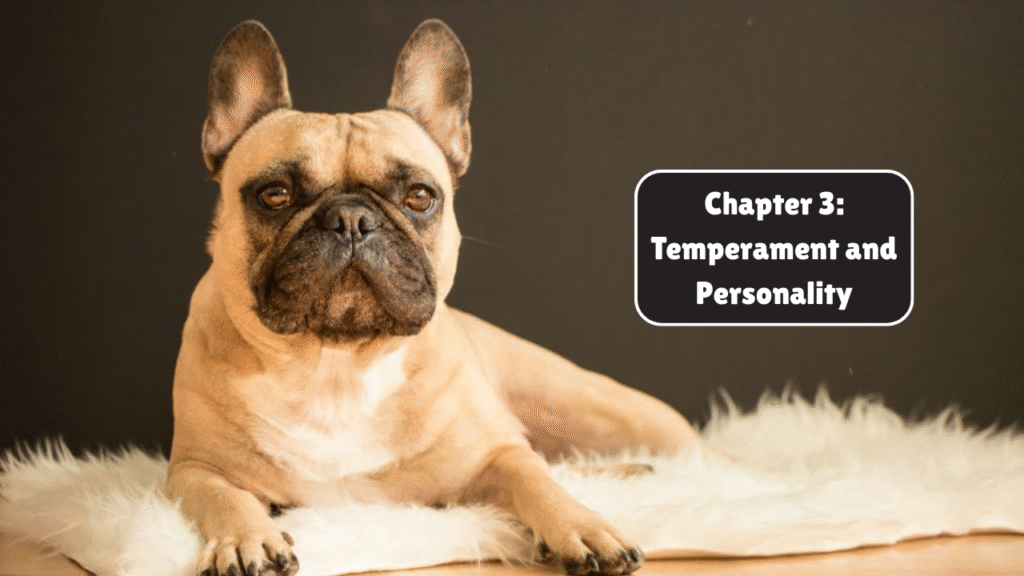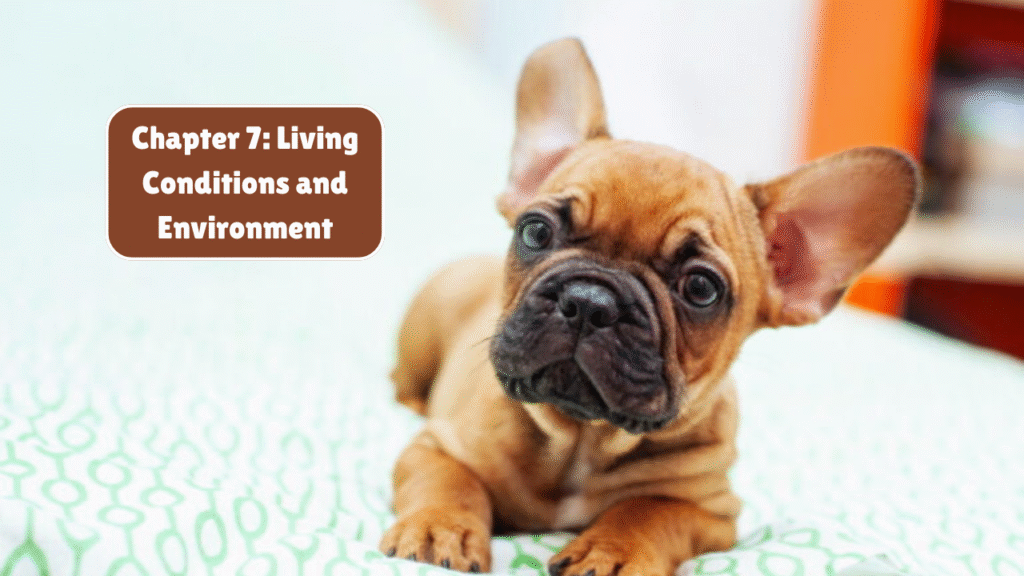Introduction
Charming, compact, and full of personality—French Bulldogs have become one of the most beloved companion dogs in the world. Known affectionately as “Frenchies,” this breed is loved for its small size, affectionate nature, and distinctive bat-like ears. Whether you live in a bustling city apartment or a suburban home, French Bulldogs adapt effortlessly, offering companionship and loyalty to all kinds of pet parents. This article delves into everything you need to know about French Bulldogs, from their history and physical traits to care requirements and personality traits.
Chapter 1: Origins and History
A Brief History
Despite their name, French Bulldogs originated in England. In the 1800s, lace workers in Nottingham bred a smaller version of the English Bulldog to serve as a lapdog. When these workers migrated to France during the Industrial Revolution, they took their small bulldogs with them. These dogs were then further bred with local French ratters, resulting in what we now know as the French Bulldog.
Frenchies became a symbol of Parisian café culture, often seen alongside artists, actors, and fashionistas. Their popularity soon spread across Europe and eventually to America, where they found favor among the elite and upper class. The American Kennel Club officially recognized the French Bulldog in 1898.
Chapter 2: Physical Characteristics
General Appearance
French Bulldogs are compact, muscular dogs with a smooth coat, short snout, and signature bat ears. Their appearance is both adorable and unique, making them instantly recognizable.
- Height: 11–12 inches
- Weight: Under 28 pounds (ideally 16–28 pounds)
- Coat: Short, smooth, and fine
- Color: Common colors include brindle, cream, fawn, white, and various combinations
Distinctive Features
- Bat Ears: Upright, rounded ears set high on the head
- Short Muzzle: A flat face and a “squashed” nose, part of their brachycephalic breed trait
- Compact Build: A sturdy, square-shaped body with a low center of gravity

Chapter 3: Temperament and Personality
French Bulldogs are often described as affectionate, sociable, and intelligent. They thrive on human interaction and are known for forming strong bonds with their families.
Key Personality Traits
- Affectionate: They love cuddling and are happiest when near their owners.
- Playful: Frenchies enjoy short bursts of playtime, often displaying a quirky sense of humor.
- Stubborn: Their independent streak can make training a challenge.
- Loyal: They form deep bonds and can suffer from separation anxiety if left alone for long periods.
French Bulldogs are excellent with children and other pets, especially when socialized early. They’re rarely aggressive but may be territorial if not properly trained.
Chapter 4: Health and Lifespan
Common Health Issues
Due to their unique physical structure, French Bulldogs are prone to several health conditions:
- Brachycephalic Syndrome: Breathing difficulties due to their short snout
- Hip Dysplasia: Abnormal development of the hip joint
- Allergies: Skin allergies and food sensitivities are common
- Intervertebral Disc Disease (IVDD): Spinal problems due to their short legs and stocky build
- Eye Conditions: Cherry eye, cataracts, and other eye disorders
Lifespan
The average lifespan of a French Bulldog is 10–12 years, though some live longer with proper care and a healthy lifestyle.
Tips for a Healthy Frenchie
- Regular vet checkups
- High-quality diet tailored for brachycephalic breeds
- Weight management to reduce joint and breathing stress
- Temperature regulation—avoid overheating
Chapter 5: Grooming and Maintenance
Grooming Needs
French Bulldogs are relatively low-maintenance when it comes to grooming, but they do require some attention:
- Brushing: Once a week to remove loose hair and minimize shedding
- Bathing: Every 4–6 weeks or as needed
- Wrinkle Cleaning: Their facial folds should be cleaned regularly to prevent bacterial buildup
- Nail Trimming: Every 2–4 weeks
- Ear Cleaning: Weekly to prevent infections
Shedding Level
French Bulldogs are moderate shedders. Their short coat doesn’t require much upkeep, but seasonal shedding may increase during spring and fall.
Chapter 6: Training and Behavior
Trainability
French Bulldogs are intelligent but also quite stubborn. Positive reinforcement, patience, and consistency are key to successful training.
- Housebreaking: Can be slow; crate training often helps
- Obedience Training: Short, fun sessions are most effective
- Socialization: Start early to reduce fear or aggression
- Avoid Punishment: Harsh discipline doesn’t work and can damage trust
Behavioral Quirks
- Prone to snoring and snorting due to their flat faces
- Can become clingy or develop separation anxiety
- Often perform “zoomies” (random energy bursts)
- Sometimes bark to alert, but not excessive barkers

Chapter 7: Living Conditions and Environment
French Bulldogs are ideal for apartment living due to their small size and low activity level indoors. However, they’re not built for extreme weather.
Climate Sensitivity
- Heat: Frenchies overheat quickly and should avoid strenuous activity in hot weather.
- Cold: Short coats offer little insulation, so they may need sweaters or jackets in winter.
Space Requirements
French Bulldogs don’t need a lot of space but do enjoy having a cozy corner and access to short walks.
Chapter 8: Diet and Nutrition
Feeding Guidelines
- Puppies: 3–4 small meals daily
- Adults: 2 meals per day
- Seniors: May require a specialized diet based on activity level and health
Diet Tips
- Choose food rich in high-quality protein and healthy fats
- Avoid fillers, artificial preservatives, and allergens
- Monitor portions to prevent obesity
Hydration is crucial, especially in warmer months when they may overheat easily.
Chapter 9: Exercise Requirements
French Bulldogs don’t require a rigorous exercise routine but benefit from daily walks and moderate play.
Recommended Activities
- 15–30 minute daily walk
- Gentle fetch or tug-of-war
- Puzzle toys for mental stimulation
Avoid overexertion, especially in the heat. Their breathing difficulties make intense activity risky.
Chapter 10: French Bulldogs as Family Pets
With Children
French Bulldogs are generally excellent with kids. Their playful and patient nature makes them great playmates, especially in calm, supervised settings.
With Other Pets
When socialized early, Frenchies coexist peacefully with other dogs and even cats. They’re not naturally aggressive but can be possessive of toys or food.
Chapter 11: Adoption and Buying Tips
Choosing a Reputable Breeder
- Ask for health clearances (especially for breathing and hip issues)
- Visit the breeder’s facility
- Avoid breeders who won’t let you meet the puppy’s parents
Adoption Options
- Rescue groups and shelters often have French Bulldogs looking for homes
- Consider breed-specific rescues
Cost
The price for a French Bulldog can range from $1,500 to $8,000, depending on pedigree and breeder reputation. Adoption fees are usually much lower, around $200–$600.
Conclusion
French Bulldogs are more than just a trendy breed—they’re loyal companions, affectionate family members, and adorable little clowns who brighten any home. While they do come with specific care needs, their loving nature and unique personality make the extra effort worthwhile. Whether you’re a single city dweller or part of a big family, a Frenchie can fit into your life and your heart.
FAQs
1. Are French Bulldogs good with children?
Yes, French Bulldogs are known for their patient and affectionate demeanor, making them great companions for kids.
2. How much exercise does a French Bulldog need?
French Bulldogs require only moderate exercise—typically a 15–30 minute walk per day and some light indoor play.
3. Do French Bulldogs bark a lot?
Frenchies are not excessive barkers. They may bark to alert you or express excitement but are generally quiet dogs.
4. Can French Bulldogs be left alone?
They can tolerate being alone for a few hours, but prolonged separation can lead to anxiety. Consider crate training or a pet sitter if you’re away often.
5. Are French Bulldogs hypoallergenic?
No, French Bulldogs are not hypoallergenic. They do shed and can produce dander, which may affect allergy sufferers.



